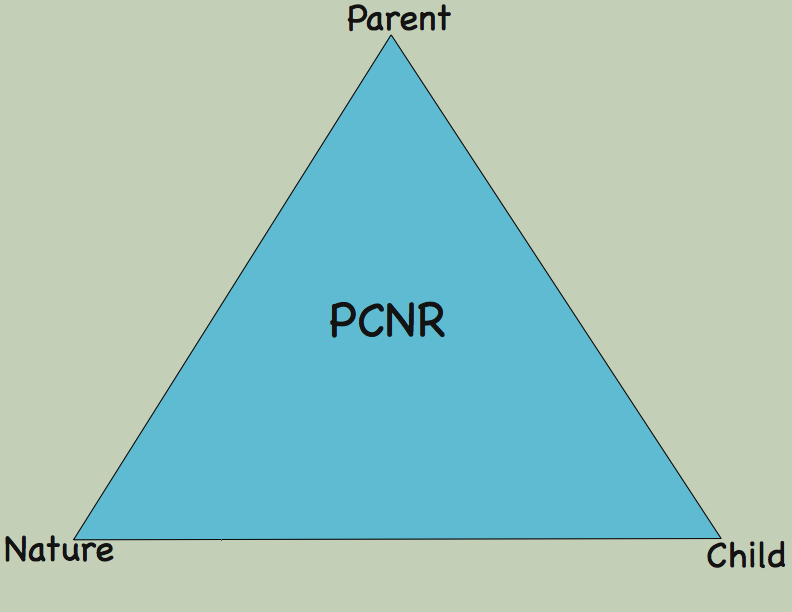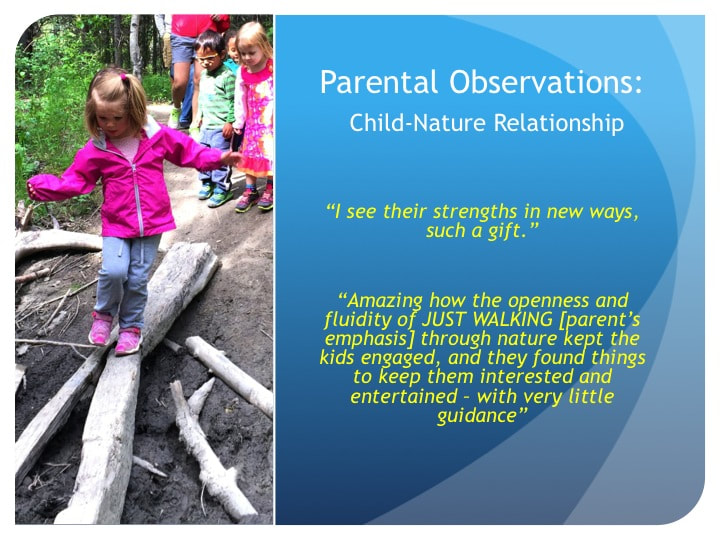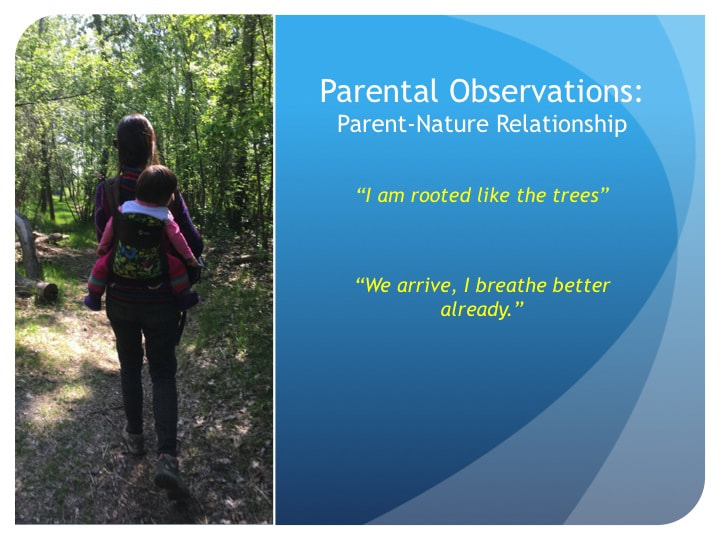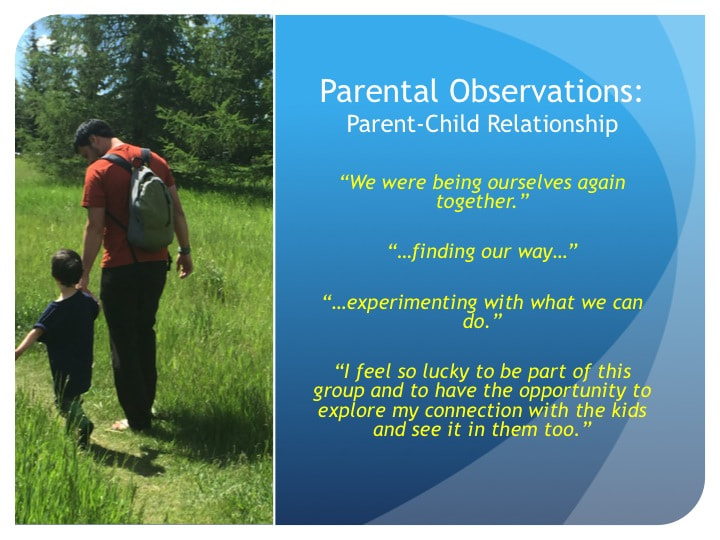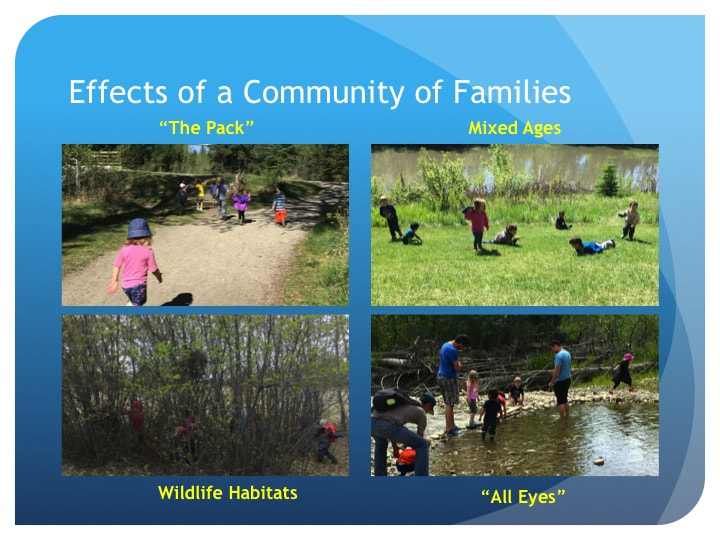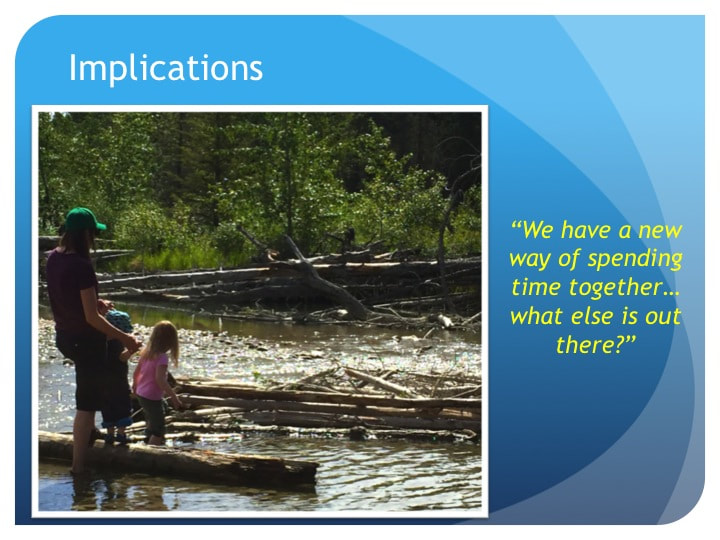11 Families, 8 Urban Parks and 1 Owl Puppet...
Family Nature Clubs: Exploring the Parent-Child-Nature Relationship
Alexandra O'Rourke
MA Environmental Education and Communication
Royal Roads University
Supervisor: Dr. Cheryl Charles
Committee Member: Dr. Milton McClaren
Alexandra O'Rourke
MA Environmental Education and Communication
Royal Roads University
Supervisor: Dr. Cheryl Charles
Committee Member: Dr. Milton McClaren
Thesis Timeline:
- Spring 2016: Urban Wild Program and Case Study
- Summer 2016: Royal Roads University Final Residency
- Fall 2016: Study Analysis, Results and Thesis Writing
- Winter and Spring 2017: Thesis Writing
- Summer 2017: Thesis Defence & Celebration... Have Baby!!
|
Abstract
Because parents have been found to ultimately influence the degree to which their children have contact with the natural world (Chawla, 2015; Clements, 2004; Louv, 2005, Rivkin, 1998; Sobel, 2008), the parent-child-nature relationship (PCNR) was identified as the main area of interest for the research reported in this thesis. Family nature clubs have been recognized as platforms from which to achieve the parental engagement critical in fostering contact between children and natural settings and to nurture children’s interest in and concern for nature. Qualitative research approaches were employed to study the PCNR during an eight-week case study of a family nature club that included 11 participating families. The study was grounded in phenomenological and ethnographic methods including entry interviews, field observations, parents’ journal reflections and a concluding focus group. The observations and self-reflections made by the parents during the period of the case study provided new insights about the value of experiences in nature for their children and families and included developing an appreciation of nature as a safe partner in their children’s experiences and of the importance of following the child’s lead in the process. |
Please Note:
The results that follow on this page are a summary of key concepts and take aways from the case study. Quotes shared are from journal reflections and focus group transcripts contributed by case study parents. The full thesis is available by clicking here. Thank you for taking the time to view! |
The Explored Phenomenon
Parental Observations
|
The Child-Nature Relationship
An element of surprise was often associated with parental observations around this edge of the relationship. Ultimately, parental observations revealed that the young child is a competent explorer of the natural world requiring minimal adult guidance. As a result of the frequency to which all parents shared observations around the child-nature relationship, this relationship is indicated to be at the heart of the PCNR experience. |
|
The Parent-Nature Relationship
Often parents commented on a freedom from day-day distractions or the “adult world” (as unique to outdoor experiences) resulting in a grounding effect and a heightened sense of observation. The effects of the parent-nature relationship for parents is identified to be a key element to the PCNR experience as it provided parents the opportunity to be more present in the experience with their child. |
New Parental Insights
As a result of what parents observed around the three edges of the PCNR parents developed new insights around how nature is a valuable partner in their family experience.
A Community of Families
|
The effects of a community of families sharing in nature-based experiences had a positive influence on what parents observed and in their developing insights. Below I will highlight a few key effects of exploring nature-based experiences as a community of families:
|
The Three Key Principles of the PCNR
Parental observations, insights and the effects of a community of families all contributed to the three key principles of the PCNR identified by parents during this case study. These three principles indicate a sense of increased capacity and desire for parents to provide more unstructured experiences during nature play for their children — which has been identified as an increasingly missing aspect of childhood today.
Case Study Implications
Dedication
For my son Francis
May we continue to explore a connection to ourselves, to each other and to the natural world through our urban wild adventures and beyond!
Acknowledgments
For my son Francis
May we continue to explore a connection to ourselves, to each other and to the natural world through our urban wild adventures and beyond!
Acknowledgments
- Shaun: Thank you for always recognizing and believing in the value of my ideas and dreams even when I have had doubts.
- Family, friends and Nonna: Thank you for your caring hearts and hands supporting my family during the three residencies I was away and throughout the years.
- Urban Wild Families: Thank you for inspiring me with your diverse insights into how nature as a partner supports our families. I hope to cross paths with you in the urban wild again soon!
- Thesis Committee – Thank you to my Committee Supervisor, Dr. Cheryl Charles, and my Committee Member, Dr. Milton McClaren, for providing me with the language and tools to dig into the heart of this thesis. Most importantly, thank you for your trust and encouragement to keep going.
- Royal Roads University and the 2014 Cohort – Thank you for a community of people who reminded me about the importance of ideas – having them, sharing them and growing them. I hope to co-inspire with you all in the future.
